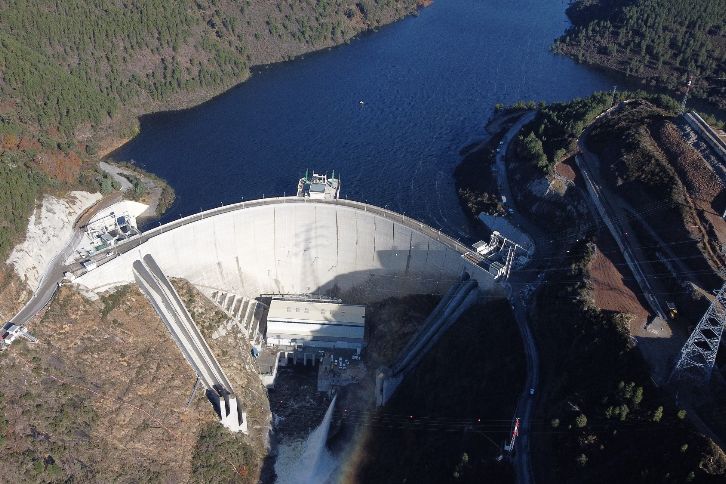Noticias
-
31/01/2024Together with Lactalis, we promote sustainable mobility with the installation of an electric vehicle charging network Iberdrola and Lactalis are strengthening their collaboration to accelerate the decarbonisation of the leading multinational company of dairy products, with the installation of a network of charging points for plug-in hybrid and electric vehicles . Specifically, Iberdrola has installed a total of 44 charging points in the 11 Lactalis factories and work centres in six Spanish regions. This agreement for the deployment of charging infrastructure joins the more than 60 alliances that Iberdrola maintains with administrations, institutions, companies, service stations, dealers and electric vehicle manufacturers to promote electromobility in Spain, as part of its sustainable mobility plan . Iberdrola offers comprehensive mobility services to cover all the needs of electric vehicle users with an extensive charging infrastructure: residential, business and public charging, including solutions for urban and heavy transport. You can read the full story in the Iberdrola España Communication Room . READ MORE
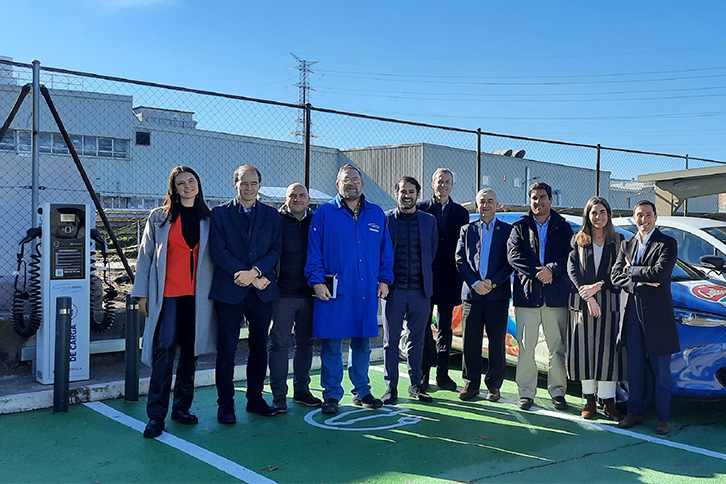
-
31/01/2024Iberdrola is to build its first onshore wind farm in Oklahoma and expand its US presence to 25 states Iberdrola, through its US subsidiary Avangrid*, is to build a 147.5 MW onshore wind farm in Oklahoma. Pontotoc Wind will have 33 wind turbines and will generate around 500,000 MWh of clean energy per year – enough to supply 40,000 homes. In this way, the company expands its presence in the country to 25 states. You can read the full news in the Avangrid Press Room. * AVANGRID, Inc. is 81.50 % owned by Iberdrola, S. A. READ MORE
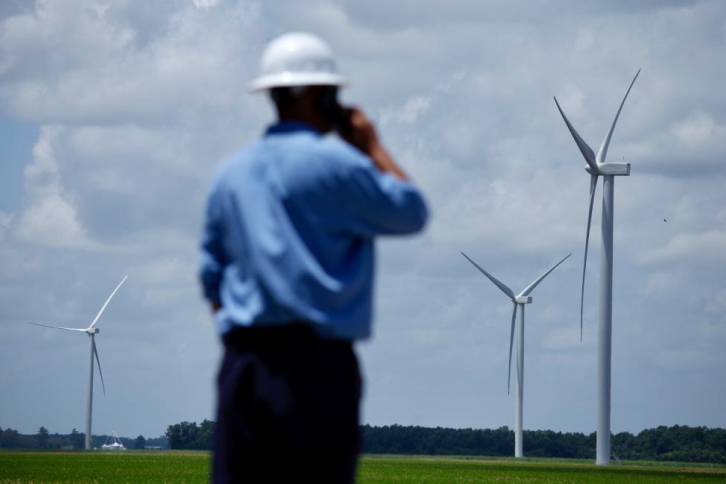
-
29/01/2024Iberdrola and BCAM will collaborate on the AI Innovation Data Space project to optimise grids BCAM, the Research Center on Applied Mathematics attached to the Basque Government's Department of Education, will collaborate with Iberdrola in the Innovation Data Space (i-DS) project. This collaboration has materialised through the signing of an agreement within the framework of the Global Smart Grids Innovation Hub (GSGIH). GSGIH is a collaborative work environment in which BCAM has been involved since 2021 along with other suppliers, companies, technology centres and universities, with the aim of using innovation as a lever to improve the grid distribution service and the capacity and efficiency of the grid for greater integration of renewable energies and the electrification of the economy. Among the areas of collaboration of the GSGIH is the Innovation Data Space (i-DS) project in which, through Artificial Intelligence, the aim is to speed up and enhance the extraction of value from data to improve the service of distribution networks. BCAM will participate in the development of the use cases proposed in the i-DS. More specifically, BCAM's work in this project will focus on forecasting demand in the LV (Low Voltage) grid through management improvement actions based on the generation of future consumption and generation scenarios in order to prioritise actions in the demand forecasting process linked to LV grid planning and investment prioritisation. This is not the first time that both entities have worked together. For example, BCAM participates in the IA4TES project - Artificial Intelligence for the Sustainable Energy Transition, led by Iberdrola, which is included within the framework of the Artificial Intelligence R&D Missions Programme, within the framework of the Digital Spain Agenda 2025 and the National Artificial Intelligence Strategy. The project started in 2022, was one of five awarded in Spain and has a total grant of more than €12.5M. The main objective is to investigate the solutions that different Artificial Intelligence technologies can bring to the electricity sector, considering the new paradigm of the electricity system. On the part of BCAM, the researchers coordinating the work are Ramón y Cajal researcher at BCAM and Ikerbasque Santiago Mazuelas and Vincenzo Nava, Senior Researcher at BCAM and Tecnalia Research & Innovation. About BCAM BCAM is an interdisciplinary research centre based in Bilbao and promoted by the Department of Education of the Basque Government; it is part of the BERC (Basque Excellence Research Centers) network. Founded in 2008 by the Basque Government through Ikerbasque, one of its main objectives is to put mathematics at the service of society through knowledge transfer, extending the results of its research to sectors such as biosciences, health, energy or advanced manufacturing, and working jointly with local and international institutions and companies. The centre, which currently has 186 researchers from 34 countries, has been awarded on three occasions (2013, 2018 and 2021) with the Severo Ochoa distinction by the State Research Agency, which consolidates the BCAM as one of the most important institutions in its field in Europe. About Iberdrola Hub Iberdrola wants to remain at the forefront of the energy transition by developing new business and technological models in distribution networks. The electricity system is undergoing an unprecedented transformation and the grids have become a cornerstone of the energy revolution; an essential platform for moving towards a decarbonised economy, which favours the development of an electricity system with more renewable sources, sustainable mobility, smart cities and self-consumption. With the creation of the Global Smart Grids Innovation Hub, the group aims to double innovation projects in smart grids, consolidating and expanding the current successful model of collaboration with manufacturers of electrical equipment. To this end, the company has identified from the outset more than 120 projects for future development worth 130 million euros. Since this Hub was launched in October 2021, ongoing R&D&I projects have been registered for a total estimated investment of 42 million euros in Iberdrola Redes España. In addition, agreements have been reached with more than 100 technology partners for the development of grid digitalisation solutions, integration of renewables, deployment of electric vehicles and energy storage systems. READ MORE
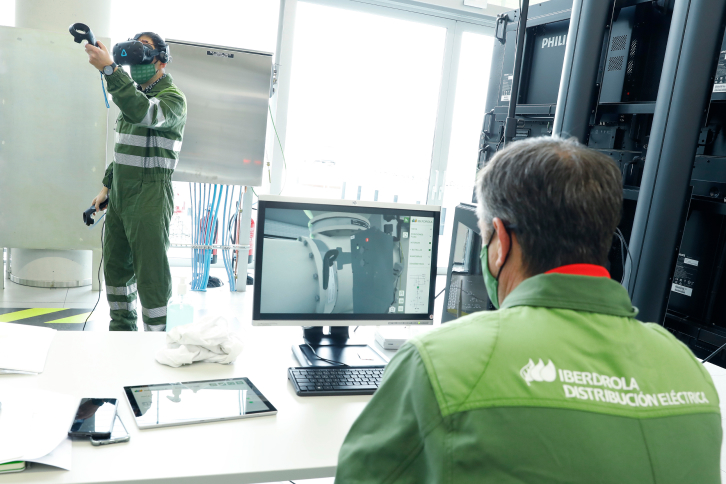
-
29/01/2024Iberdrola and Rock in Rio seek innovative projects to decarbonise the music festival Iberdrola, through its Brazilian subsidiary Neoenergia, is joining forces with Rock in Rio to launch a new challenge to decarbonise the world's largest music and entertainment festival. Both companies are looking for innovative solutions to further reduce CO2 emissions from music events in the short, medium and long term. This initiative is aimed at the innovation community, including start-ups, researchers and experts. Those interested can participate until 9 February. You can find more information about this news on Neoenergia's website . READ MORE

-
24/01/2024More than 40 companies start up Iberdrola Q-Cero, the alliance for the decarbonisation of thermal demand in Spain More than 40 companies took part in the launch event of Q-Zero , the alliance for the decarbonisation of thermal demand in Spain, organised today at Iberdrola's headquarters. The initiative, open to all agents, was created as a meeting and dialogue point to accelerate decarbonisation, especially of thermal energy demand in both the industrial and building sectors, and to combat climate change . The partnership, facilitated and supported by the Centre for Innovation in Technology for Human Development of the Polytechnic University of Madrid, has today brought together all sectors of the industrial economic chain. The current pace of decarbonisation in the industrial and building sectors is below the pace needed to achieve the commitments made in the fight against climate change, and to limit global warming to 1.5 degrees Celsius . The alliance is conceived as a common place open to all actors where all entities come together, discuss the current situation, identify bottlenecks and develop proposals and activities to accelerate the electrification of heat in the different sectors, maintaining competitiveness and taking advantage of and contributing to realising the opportunities of the energy transition . The electrification of heat is a sector with special particularities, as although there are numerous barriers common to all businesses, there are also significant differences. This reality poses challenges for the acceleration of the process of decarbonisation of thermal demand, and at the same time an economic opportunity to develop new markets and decarbonisation technologies in Spain. Iberdrola Chairman Ignacio Galán said at the launch of the Alliance that "there is a real urgency to change our energy system. We need it to protect our environment, but also to increase our energy autonomy and reduce fossil fuel imports. This is a real partnership to decarbonise and seize new opportunities. Many companies also share this commitment, and that is why we are reaching agreements among ourselves and with the financial sector to achieve the goal of a three-fold increase in clean energy ." Galán also wanted to "thank the workers of all the companies that form part of this alliance for their commitment to building a more fraternal, equitable and sustainable world, and of course, one that is less polluted for everyone, where Spain has a unique opportunity. The social clamour and the political consensus demand it". The companies and entities that participated in the launch of the alliance were Abadía Retuerta, Ábbatte, AFEC, AndreuWorld, Antolín, AQ Compute, Bayer, bp, Carbon2Nature, Castillo de Canena, Contazara, Crimidesa, Disalfarm, EIT Climate KIC, Ence - Energía y Celulosa, Estrella Levante (DAMM Group), Fagor Ederlan, Ferrovial, Gonvarri Solar Steel, Google, Heineken, Holcim, Iberdrola, Kyoto, Lactalis, Latem Aluminium, Losán, Masam, Merlin Properties, Molecor, NetZero Basque Industrial Super Cluster, Pepsico, Plastic Energy, Porcelanosa, Rebi, Sabic, SpainDC, T500 Puratos and Tubos Reunidos Group. Country opportunity The alliance is in line with the European Union's fight against climate change and its goal for all member countries to reduce their greenhouse gas emissions by at least 55% by 2030. The demand for thermal energy accounts for approximately 40% of final energy demand in Spain. This demand is divided approximately equally between industry and heat needs in buildings, including the residential and tertiary sectors. The weight of industry is decreasing in Europe and is particularly low in Spain. Its dependence on fossil fuels, the energy crisis and the lack of energy autonomy, among other variables, are increasing energy costs, affecting competitiveness. Compared to other countries, Spain has the competitive advantage of having the best renewable resources in Europe. On the path towards a carbon-free energy transition and security of supply at stable prices, Spain has abundant clean and competitive energy, which represents an enormous opportunity to attract industry to our country, generating employment and added value. READ MORE
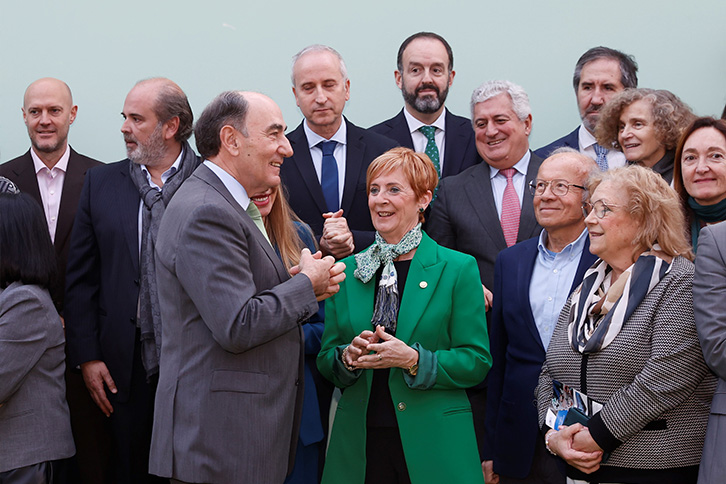
-
24/01/2024Ignacio Galán at the launch of the Q-Zero Alliance for decarbonisation: "We have time if we triple renewables by 2030 and reduce fossil fuels" Ignacio Galán was interviewed on the radio programme "Más de uno", hosted on the Onda Cero channel by Carlos Alsina, one of Spain's leading opinion leaders, on the occasion of the launch of the Q-Zero alliance. The Chairman of the Iberdrola group encouraged "joining forces between those who produce, those who consume and those who manage" to respond to "the global clamour for decarbonisation and the reduction of emissions and polluting materials on the planet". The latest major international events, such as the Annual Meeting of the World Economic Forum in Davos or the Climate Summit in Dubai, have made it clear that there is a broad political consensus to move towards electrification and reduce the consumption of fossil fuels. "This is not a war against each other. It is an alliance with each other to achieve the goals of decarbonisation ", Galán insisted. "Together we can achieve it. Separately, it will be much more difficult", he assured. This process will bring benefits for citizens in three main areas, according to Ignacio Galán. On the one hand, it will produce more stable prices by avoiding volatility, as "indigenous renewable production will reduce dependence on imports". Secondly, this will generate "new industries and more quality jobs". "Today we already have more than 36 million jobs linked to the energy transition ," said Galán. Finally, decarbonisation will have a positive impact on people's health because "it will lead to much less harmful air and environmental quality". "Energy is not electricity" Asked about the taxation of energy companies as a result of the crisis, the chairman of the Iberdrola Group clarified that "energy is not electricity", as demonstrated by the fact that, today, "80% of the energy we consume is not electricity. It is energy produced with gas, coal or oil" and he recalled that the crisis "was not electrical, it was energy because the origin was called gas". He regretted that "in this totum revolutum" the electricity companies have been affected "we were the solution and not the problem. If we want less volatility, more renewables and more storage", he said. "I defend, have defended and will defend the polluter pays principle. And those who do not pollute and do things well must be rewarded or recognised. You can't lump everyone together", he concluded. Galán also gave his opinion on the debate as to whether we are acting quickly enough in the face of climate change . "Without a doubt, we are moving at a very slow pace. We have already almost reached the temperature levels we expected for 2050", said Galán who, nevertheless, was optimistic: "We have time if we triple renewables by 2030 and reduce the consumption of fossil fuels". In this sense, he was critical of those who describe as green what is not: "I have experienced the denialists in the first stage, who were disproved by an immense scientific base. Then came the retardationists, who said we are going to do it, but more slowly, and now green washing is emerging, they say but don't do". READ MORE

-
23/01/2024Iberdrola will install six new storage batteries in Spain with a capacity of 150 MW Iberdrola España will install six Battery Energy Storage Systems (BESS) with a combined capacity of 150 MW. This is an innovative solution for the storage and integration of renewable energies into the system. Each project will generate more than 100 green jobs, including the construction and operation phases. Battery storage technology is becoming increasingly important for maximising the use of clean energy , regulating the grid frequency to within a millisecond and providing back-up capacity at peak energy periods. The six new batteries to be built by the company have been recognised as Strategic Projects for Economic Recovery and Transformation (PERTE), in its renewable energy, green hydrogen and storage (ERHA) division, and will receive 37.5 million in funding. The batteries will have lithium-ion technology – the most widespread at present given its performance, technological maturity and cost. These systems will be installed as hybrid technology together with renewable energy sources (in this case with solar); so the photovoltaic plant and the battery will share the same connection point. The projects will be built in Castilla y León , Extremadura , Castilla La Mancha and Andalusia , and each battery will have 25 MW of power and a capacity of 50 MWh. In Castilla y León, a battery will be installed in Revilla Vallejera (Burgos), where Iberdrola España completed its first hybrid wind-solar plant in Spain in 2023. Extremadura will have two new batteries. The company will install two batteries in the province of Cáceres, where the C. Arañuelo I and II photovoltaic plants are located. In Castilla La Mancha, two batteries will be installed in the municipalities of Valverdejo, Alarcón and Olmedilla de Alarcón (Cuenca), where Iberdrola España has solar parks. The sixth battery will be built in Huelva, in the municipality of Puebla de Guzmán where Iberdrola España has the Andévalo photovoltaic plant – the first facility built with the UNEF Certificate of Excellence. Pioneer in addressing the energy transition Storage systems are key to addressing the challenge of the energy transition and are set to become an essential element in the electricity system by improving the quality of electricity supply – ensuring the stability and reliability of the grid and integrating and harnessing energy generated by renewable sources. The company is firmly committed to storage through pumped hydroelectric technology, where it is the leader – with more than 4,000 MW of installed capacity – in projects such as Cortes-La Muela (Valencia) and Tâmega (Portugal), which – with an installed capacity of 1,158 MW – is the largest facility of its characteristics in Europe. In November 2019, Iberdrola España inaugurated the first electrical energy storage system with lithium-ion batteries for distribution networks in Spain. The project – a pioneer in the country and located in the Murcian municipality of Caravaca de la Cruz (Murcia) – improves the quality of energy supply in the surrounding area, as well as making the most of the solar energy generated in the area. Iberdrola España was also a pioneer in the installation of batteries together with renewable sources. This is the case of the Campo Arañuelo III installation, which was the first battery connected to a photovoltaic project. For its part, the Puertollano battery, with a capacity of 20 MWh, stores the production obtained from a nearby solar plant to generate the green hydrogen of the largest plant of this energy source for industrial use in Europe. The company also has a stand-alone system in Abadiño (Vizcaya), which allows it to connect directly to the grid and operate without the need to be connected to a facility. In this way, it manages to decongest the grid and store surplus energy at times of maximum generation to be used when it is most needed. Specifically, this battery is connected to the evacuation of the Oiz wind farm. Furthermore, in the Basque Country, Iberdrola España has the first battery in Spain to store wind energy at the Elgea-Urkilla wind farm. Technology for the environment By using two technologies capable of alternating (hybrid systems), dependence on changing environmental conditions and limitations is significantly decreased due to possible lack of resources such as wind or sunshine – facilitating more stable and efficient renewable production. In addition, hybrid generation plants use the same grid connection point and share infrastructures, such as the substation and the evacuation line for the electricity produced. In addition, they are located on land that was already used for renewable generation and allows for common roads and facilities for the operation of both technologies. All of this results in a much lower environmental impact than would have been the case with two independent plants. READ MORE
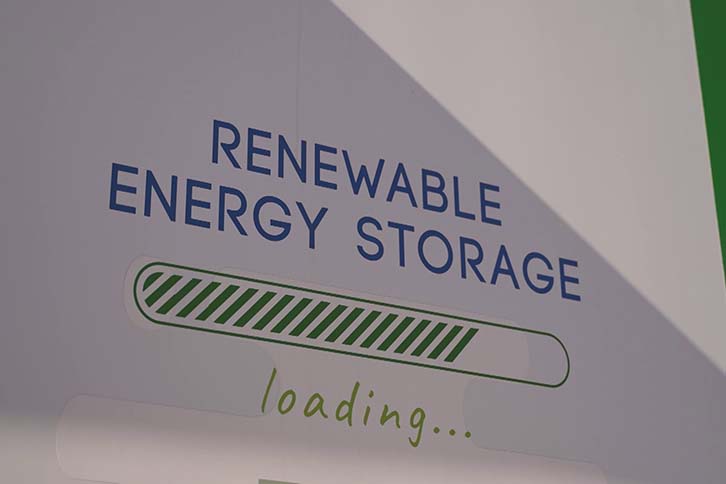
-
22/01/2024Iberdrola takes another step forward towards the commissioning of the Tâmega Hydroelectric Complex Iberdrola has taken another step towards the commissioning of the Tâmega Hydroelectric Complex by successfully connecting to the grid one of the two turbines of the Alto Tâmega Hydroelectric Power Plant – the last of the Complex's turbines to come on stream. The Tâmega Hydroelectric Complex is made up of three power plants: the Alto Tâmega Hydroelectric Power Plant, with an installed capacity of 160 MW; the Gouvães Pumping Hydroelectric Plant (880 MW); and the Daivões Power Plant (118 MW). The latter two have been operational since 2022. Alto Tâmega Hydroelectric Power Plant is located at the foot of the Alto Tâmega Dam: a large double-curvature dome dam, 105 metres high, with 220,000 m3 of concrete and a crest length of 335 metres – which has become the fifth highest dam in Portugal. Once the first turbine is connected to the grid, the second turbine will follow with grid connection scheduled for February 2024. By the end of March 2024, the plant will be in commercial operation, with the entire Tâmega Hydroelectric Complex operating with a total installed capacity of 1,158 MW. In a context where storage capacity is key to enabling a decarbonised electricity system, maximising renewable energy production and ensuring its integration into the system, the Tâmega Hydroelectric Complex has enabled a 33% increase in Portugal's hydroelectric storage capacity. This increase in power represented an increase of over 60% in the volume of energy stored by pumping in 2023 compared to 2021, as states Rafael Chacon Llorente, Project Manager of the Complex. Since hydroelectric storage is currently the only technology capable of storing electricity massively and efficiently, this Complex is able to make the most of the energy generated by the wind and the sun, compensating for the periods when the sun does not shine and the wind does not turn the blades of the wind turbines. Portugal obtains over 60% of its electricity from renewable sources, with a target of 85% by 2030. With the growth of renewables, increasingly, when the sun is shining and the wind is strong, the output of wind and solar plants exceeds the needs of the system, which, as it cannot be consumed or managed by the system, would be lost if it were not stored by pumping water – especially in the Gouvães reservoir – and could be turbined to produce energy when the system need it. The Tâmega Hydroelectric Complex is one of the largest energy initiatives in the history of Portugal, with a total investment of over €1.5 billion and an installed capacity of 1,158 MW, as well as an energy reserve of 40 million kWh – equivalent to the energy consumed by 11 million people during 24 hours in their homes. READ MORE
